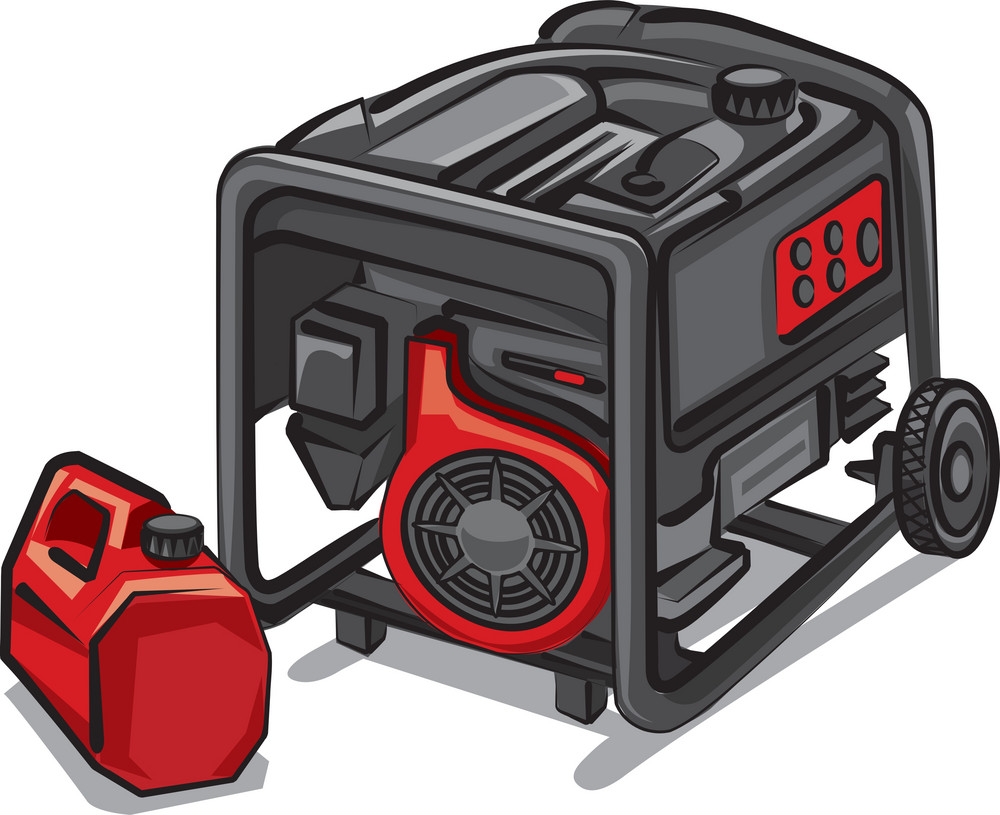Many models of backup power generator make up this growing market, but are they all the same? They can represent quite an investment, so a homeowner have an obligation to determine what kind of backup generator is most appropriate for their needs. Backup power systems run on gasoline or propane gas. Lots of them are able to be run off of a natural gas connection. It is highly recommended before making your purchase to inform yourself about what makes some models unique ensuring that your choice is a strategic one. Standby backup systems can be a costly but smart investment so be certain to buy a generator that meets or even exceeds your needs.
Make sure you know what you need before shopping for a generator: What total generator run time do you presume you will need from your generator on a continuous basis? Is it better for you to buy a standby or portable unit? Is there one type of fuel that makes more sense for you than others? Will it be easy to come by in your area? Will the fuel source be available during a power outage in the middle of a widespread emergency? Does anyone in your household need actively running computers or servers?
After determining these things, you will have a better idea of what kind of home generator you will need. Below is some basic information about each type of generator that may help you out.
Natural Gas:
The most widely-used fuel type when it comes to generator systems and is safe and reliable. Its only potential drawback is even it can be hard to find in a select few areas. Ensure that before purchasing to see what readily available fuel options there are where you live. Natural gas generators connect to your home’s supply. So you never need to worry about refueling, which can save time and money. As an added bonus, NG, will not congeal in your fuel line as it burns cleanly, is far less audible than other fuels when burning, is well-suited to the winter months and contribute to a longer engine life. On the contrary, you may have no access to NG if there’s a hurricane or earthquake, and it can become extremely dangerous if a line is broken. Hook-up fees can be higher than with other generator types and you’ll pay more for NG than other fuel types.
Gasoline:
Gasoline is the most familiar type of fuel as most people either have a car. Additionally, with gas generators, the power-per-weight unit is higher than all others. Downsides are frequent maintenance, and gas is highly flammable.
Diesel:
The best part about diesel is that it is extremely efficient. It is especially good for heavy-duty equipment and transportation. Unfortunately, the cost can be prohibitive for some. Basically, diesel is a logical solution both financially and sustainably over time. Diesel is more stable than other gasses, diesel generators require less maintenance, and there is no sparking as the fuel ignites. Diesel generators can be used for more prolonged periods of time than other generator types, have no issue in sub-zero temperatures, run on diesel which has a better shelf life than gasoline, have lower maintenance costs, and is always readily available. Limitations are that diesel generators can be heard quite a distance away, are very heavy, and need to be thought-through before installation. Diesel generators are definitely not environmentally-friendly and you might not find convenient the times of day in which you are allowed to run it.
Propane:
standby generators tend to run on propane in place of other fuel supplies which may be harder to come by. A drawback for propane is that it has been more costly than regular gas in the past. However, with the skyrocketing price of gasoline, this disadvantage is now non-existent. Nothing is less expensive than propane these days. There used to be many disadvantages to propane that now no longer exist. Some advantages of propane are that the fuel lasts a long time in a usable state, it won’t clog your fuel line, propane burns cleanly and doesn’t destroy the environment. It’s also cold-weather friendly. Propane also can be obtained easily during outages, has longer uninterrupted run times, and is easier on your motor over time. On the contrary, these generators have more parts that may need maintenance, installation can be expensive, since you may need to hire a technician and large fuel tanks are hard to find. A propane leak poses far greater a threat to your family and home than any other type of gas leak, and a propane generator can cost you more than a gas or diesel generator.
For more info go to: www.NPSBriggsandStratton
